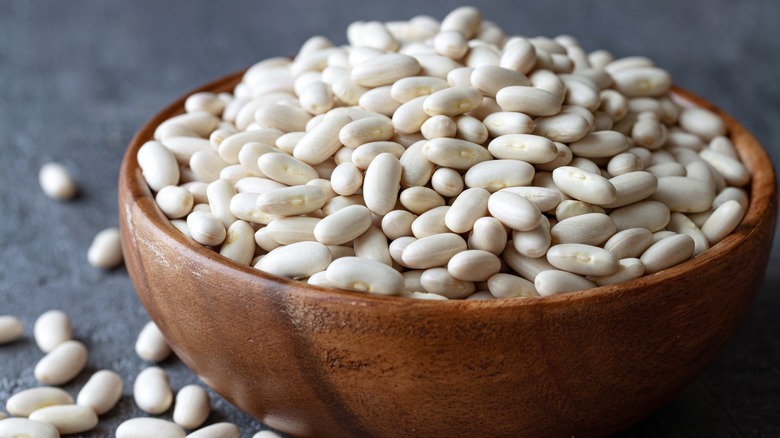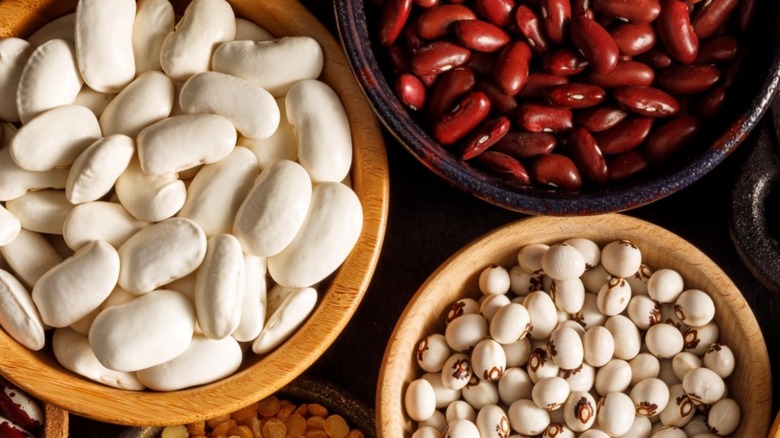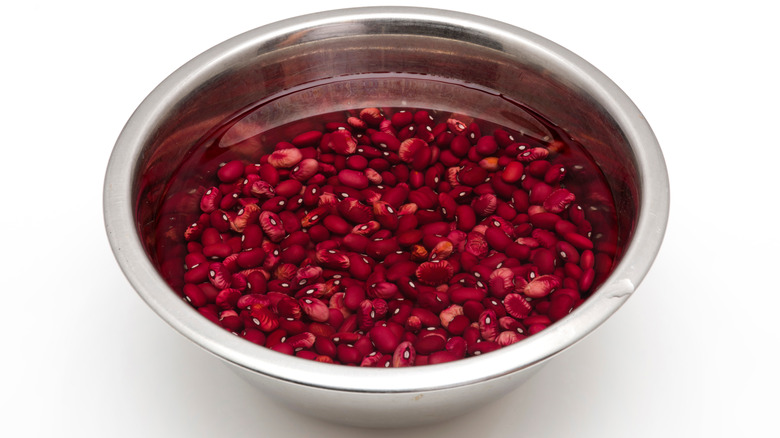Do You Really Need To Soak Dried Beans Before Cooking?
We may receive a commission on purchases made from links.
For many home cooks, beans are a staple ingredient: inexpensive, widely available, and incredibly versatile (via Popular Science). They bring creaminess, heartiness, and hefty doses of protein and fiber to dishes such as Cuban black beans, New Orleans red beans, and cassoulet, to name a few. Beans have a long shelf life, with properly stored dried beans staying safe to eat for basically forever, according to Does It Go Bad?, and canned beans for up to five years, per Food Network.
At the supermarket, you'll usually find beans in either their dried state or in cans, as mentioned above. Many shoppers opt for one variety or both, depending on what they plan to cook, but there are lots of reasons to choose dried beans over canned: As Epicurious explains, dried beans are cheaper than canned, are available in more interesting varieties, and maintain a better texture once cooked.
The thing is, some people avoid dried beans due to the perceived hassle of having to soak them before cooking. If you count yourself among that crowd, you might be relieved to learn that you don't have to soak dried beans at all.
Skip the soak the next time you prepare dried beans
Have you been ignoring that bag of dried beans in your cupboard because you just don't want to have to deal with soaking the beans before cooking them? If so, it's time to grab that bag, because, as it turns out, you really don't have to soak dried beans if you don't want to. Take it from an expert: Joe Yonan, food editor of The Washington Post and author of the cookbook "Cool Beans" told Food & Wine, "The biggest myth is the soaking. It's one of the big reasons people haven't cooked beans as much as they could have, because they feel like it's too late. But I'd like to dispel that one. You don't really have to soak beans."
Common wisdom has it that beans need to soak in order to cut down on their cooking time. But the outlet Epicurious put this theory to the test, cooking one batch of beans that was soaked overnight and one that wasn't. The result? The soaked beans were ready only 10 minutes earlier than the non-soaked beans, making the soaking process hardly worth it.
And while many people soak beans to make them easier to digest, Yonan prefers to cook dried beans with a strip of the Japanese seaweed kombu, which he told Food & Wine has the same gas-reducing effect.
But there's one exception to the no-soaking rule
So now that you've been liberated by the knowledge that you don't have to soak dried beans, you might be wondering if there's an exception to the no-soaking rule. As it turns out, there is: Food & Wine notes that if your dried beans were purchased relatively recently, they really don't need to be soaked. But if you've got a really old bag of beans, or if you purchased them from a store with low turnover (per Food52, bean packages these days don't come with an expiration date), the chances are high that those beans will have dried out even more during their storage.
Therefore, it's a good idea to soak them before cooking just to replace some of the extra moisture that's been lost. "Soaking is an insurance policy," explained "Cool Beans" author Joe Yonan. In those instances, Yonan suggests covering dried beans with a few inches of water, then adding about a tablespoon of salt to the liquid to turn it into a flavorful brine.


